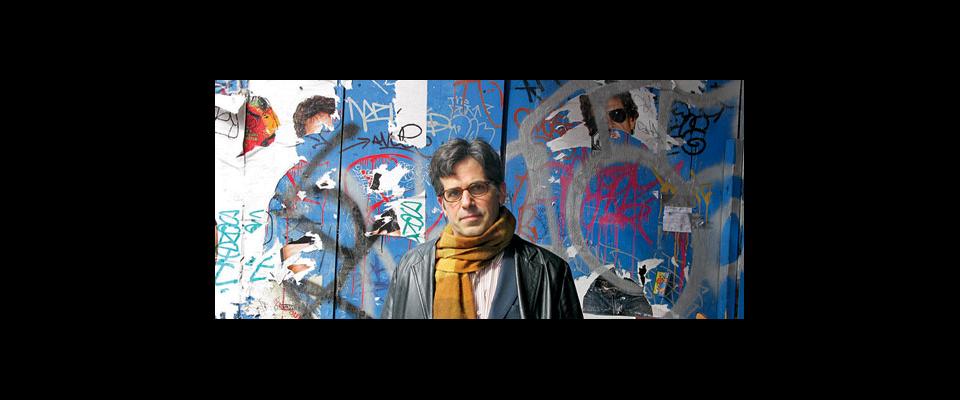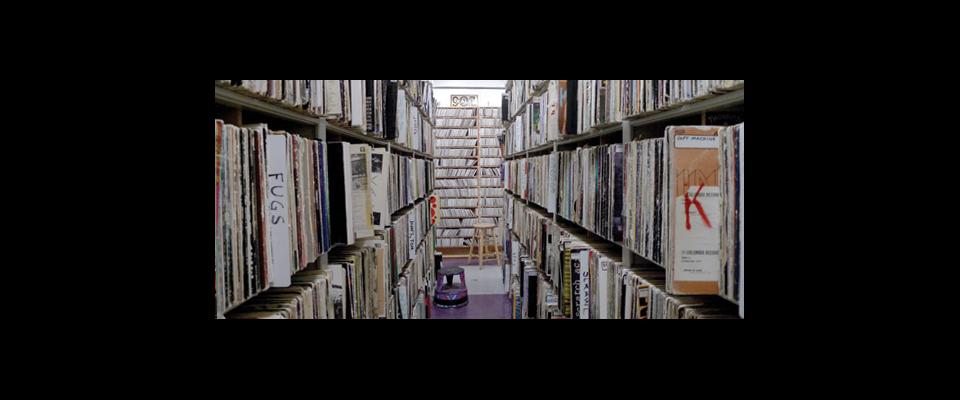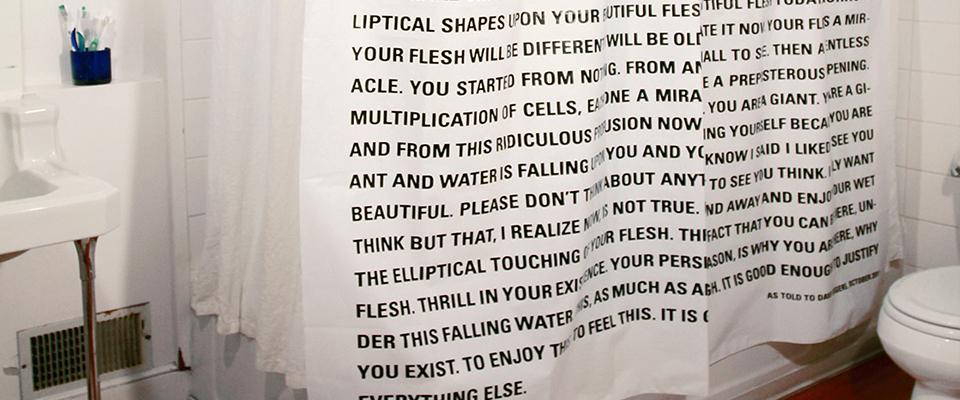Jonathan Lethem talks about becoming a writer in Berkeley
In 1984, novelist Jonathan Lethem dropped out of Bennington and headed west to Berkeley, where he spent a decade working in two of the city’s iconic bookshops: Pegasus and Moe’s. Today, the celebrated author is back in his native New York, but it was in Berkeley, he says, that he became the writer he wanted to be. California contributor Ezra Carlsen caught up with Lethem recently. What follows is an edited version of their conversation.
Ezra Carlsen: You were born and raised in Brooklyn. What brought you to Berkeley?
Jonathan Lethem: I hitchhiked out just to reenact the basic crypto-beat-generation east-to-west pilgrimage, and to get some distance from family and the school I was leaving behind. I’d been working in used bookstores as a high school student in New York City. It was the only work I’d ever done. I made up a resume with the names of all those bookstores on it, and I walked into the front door of Pegasus on Solano and a couple others—Shakespeare and Moe’s on Telegraph—and tried to get a job. Pegasus hired me first. I worked at their shop and the cousin store, Pendragon on College Avenue in Rockridge, for five years. Then I switched over to Moe’s.
On your website, you poke fun at Moe Moskowitz, but you also call him “one of the legends of California used-bookselling.” What was it like to work for him?
He was a larger-than-life figure and in some ways a very deliberately invented personality. He was funny and full of non sequiturs and provocations, and he knew it; he’d become that person by design. Of course a large measure of what made him so flamboyant in Berkeley terms was that he was a lot like a New York City–style used-book man. He was grouchy and impatient and cheerfully paranoid about people trying to take advantage of him. Then he had this other aspect that would’ve been impossible in New York, that California made possible—this unbelievable largesse and responsiveness to humanity and feeling of community. In a way he had a little private communist zone in operation. He invented his own currency, the Moe’s money. There was a point at which probably half of Berkeley had some Moe’s money in their wallet. It was a genius innovation, and he built a little utopia right there on Telegraph. I’m incredibly grateful to him and feel lucky that I got to work for him.
In Fortress of Solitude, Brooklyn and Berkeley both serve as settings. Do you see the two places as foils?
I guess I’ve been forced to concede I’m a true New Yorker, and I did get called back here by those undercurrents in my personality that I was trying to suppress or ignore for a decade of living in California. But I’m also very attracted to what the West represents to me. It’s a place of self-invention and possibility and utopia in all those ways I was suggesting Moe let it become in his life. It was that for me. It’s the place I became the writer I wanted to be—a zone of the possible, a place of permission.
I had a very instantaneous, intimate reaction to Berkeley which was recognizable to me as a place where the counterculture of my parents’ lives, the counterculture I’d grown up with had not been defeated but instead had been allowed to fulfill itself in good and bad ways. That was very consoling to me. It gave me the sensation of having my cake and eating it too, because I was at that age where I needed to flee the nest, but secretly it resembled my nest in a great number of important ways.
Did you spend any time on campus or take any classes at the University?
That’s another tricky part of my life story: my elaborate ambivalence about academia. I’m a dropout. I’ve worn that on my sleeve and gotten a lot of mileage out of it. But what did I do? I dropped out to live under the shadow of this enormous university. I was always sniffing around the edges. I took an extension class almost immediately with a very wonderful teacher named Marta Randall, who was teaching a short-story workshop that meant a lot to me. Later on in my Moe’s years, I was hanging around with a circle of students in the graduate rhetoric department and was so much in their company that I was often mistaken for a graduate student myself.
Did you write Gun, with Occasional Music while you were working at Moe’s?
By the time it came out I was working at Moe’s, but I think it would be more correct to say I wrote that as a Pegasus employee. I wrote three novels in Berkeley: Gun, Amnesia Moon, As She Climbs Across the Table, all of which have some version of a Bay Area setting as well. Girl in Landscape I began in California and finished in New York when I returned here.
How do you think working in bookstores influenced your writing, especially your appreciation of different genres?
It was at Moe’s, in that huge literature section, that I was constantly discovering all these forgotten authors that I ended up being powerfully influenced by. Just handling this ocean of different books—new and used, in and out of print, famous and forgotten—it was literature as this giant mosaic of texts and experiments and attitudes. I think it’s just very liberating to break out of a great man’s theory of history.
I guess I’ve always liked working from that sense of—what would you call it?—license that the margins permit. I always just visualize myself writing books that were meant one day to be dusty, forgotten volumes being encountered by intrepid browsers in a used bookstore. It was a much less freighted way to think about trying to enter the conversation than to imagine I had to write The Great Gatsby.
You describe one of the characters in your new novel, Chronic City, as having a “curatorial passion for culture.” Is that the work of the book clerk?
That’s the curator’s dilemma. You see it in the used-bookseller all the time: the divided impulse between hoarding the good things, because nobody else is worthy of them, and wanting to transmit them, wanting to give them away or loan them out and widen the circle. It’s the same thing Nick Hornby was making fun of in High Fidelity when the record clerks were like, “You don’t deserve to shop in our store!” But I think that the used-bookseller is usually on the side of the angels in the end.




















